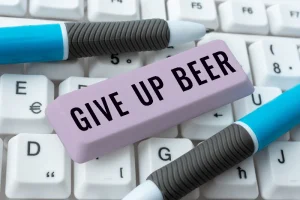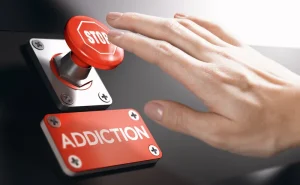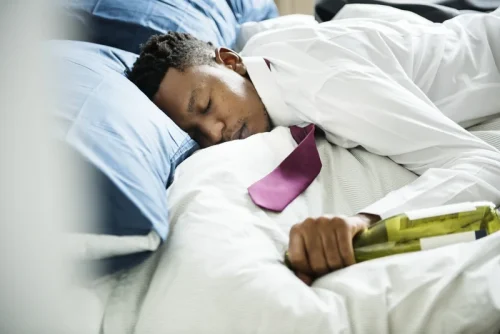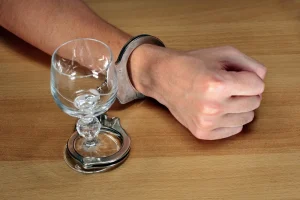
But abruptly quitting substances such as benzodiazepines or alcohol can be potentially dangerous, so always consult your doctor to come up with a detox plan. Medically-assisted withdrawal can ensure that you are safe and help to minimize unpleasant withdrawal symptoms. If you or a loved one struggle with alcohol misuse and are afraid you may experience alcohol withdrawal, contact a treatment provider today to learn more about your rehab and detox options.
- Research shows people who have a supportive social network are more likely to remain alcohol-free after withdrawal.
- You may want to speak with a loved one or therapist about a strategy to prevent relapses from happening.
- A hangover occurs when a person drinks too much alcohol at one time.
- Moderate drinking is officially defined as 1 drink or less per day for women and 2 drinks or less per day for men.
Dangers Of Alcohol Withdrawal
If you suddenly stop drinking or significantly reduce the amount of alcohol you drink, it can cause alcohol withdrawal. Even with treatment, one of the possible complications of DTs is death. Cure for Alcohol Withdrawal Symptoms The risk of death is also higher if you have other severe medical conditions. The earlier a person gets treatment for DTs, the better the odds of survival and a positive outcome.
The Science Behind Amphetamine Withdrawal
Moderate to heavy drinkers can also benefit from medical supervision in the acute withdrawal stage. For most people, alcohol withdrawal symptoms will begin sometime in the first eight hours after their final drink. If your blood pressure, pulse, or body temperature rises, or if you have more serious symptoms like seizures and hallucinations, seek medical care immediately (dial 911). If you drink alcohol heavily for weeks, months, or years, you may have both mental and physical problems when you stop or seriously cut back on how much you drink. Your healthcare provider will recommend and encourage treatment for alcohol use disorder. Moderate drinking is officially defined as 1 drink or less per day for women and 2 drinks or less per day for men.

Stimulant Withdrawal Symptoms

They can be managed with prescribed medications such as benzodiazepines. Maintaining a calm and comfortable environment, staying hydrated and avoiding stimulants like caffeine is also helpful. If you have the shakes, medical intervention is typically necessary, as shakes can be a sign of more serious withdrawal complications. Foods rich in vitamins and minerals, like fruits, vegetables, lean proteins and whole grains, can support the body’s recovery. Hydration is also important, so drinking plenty of water and avoiding caffeine is advised. Some people find that smaller, more frequent meals help if nausea is an issue.
- It can be helpful to make a plan ahead of time for how to handle a relapse.
- By reading up on alcohol withdrawal and learning more about treatment and self-help options, you’ve taken an important step toward recovery.
- The most severe and dangerous form of alcohol withdrawal is called delirium tremens (DT), in which withdrawal symptoms are much stronger.
- People who are daily or heavy drinkers may need medical support to quit.
- This can be difficult and draining, so make sure to take care of yourself physically and emotionally.
- In some cases, symptoms may progress to severe withdrawal with seizures and delirium tremens.
What is the treatment for alcohol withdrawal?
If you are ever unsure whether your loved one needs medical attention, err on the side of caution and seek help. Withdrawal can often accompany physical symptoms like nausea, vomiting, and diarrhea. Your loved one might need help with practical tasks like preparing meals, going to the bathroom, and getting around. If possible, offer to help with these tasks so your loved one can focus on healing. After about 5–8 days, you’ll notice the intensity of symptoms start to decrease. Withdrawal can be broken down into four stages with distinct symptoms.
- Alcohol withdrawal is widespread among people with alcohol use disorders who decide to stop drinking or reduce their intake.
- It also covers some of the different treatment options that are available.
Alcohol (ethanol) depresses (slows down) your central nervous system (CNS). If you consistently consume significant amounts of alcohol, your CNS gets used to this effect. Your CNS must work harder to overcome the depressant effects of alcohol to keep your body functioning. Each of these symptoms can increase in intensity depending on the severity of the withdrawal. The doctor may ask for evidence that there has been a decrease in alcohol use after regular heavy use. Anyone that thinks they are dependent on alcohol should consider speaking to a doctor.

Drug and Alcohol Withdrawal Symptoms and Treatment

In an ICU, your heart rate, blood pressure, and breathing can be monitored closely in case emergency life-support (such as artificial breathing by a machine) is needed. In delirium tremens, the brain is not able to smoothly readjust its chemistry after alcohol is stopped. This creates a state of temporary confusion and leads to dangerous changes in the way your brain regulates your circulation and breathing. The body’s vital signs such as your heart rate or blood pressure can change dramatically or unpredictably, creating a risk of heart attack, stroke or death.

Many people feel shame or embarrassment asking for this kind of help, but your provider’s job is to help, not to judge. That way, you can reduce your drinking safely and improve your health, well-being and overall quality of life. Delirium tremens is a severe, life-threatening form of withdrawal that can happen when a person with alcohol use https://ecosoberhouse.com/ disorder suddenly stops drinking. Reducing alcohol intake or quitting alcohol entirely is an important step toward improving your health if you have alcohol use disorder. But this is a goal you should also approach safely, and you don’t have to do it alone. Complications of DTs treatments largely depend on the treatments you receive.
Other medications may also be used to manage specific withdrawal symptoms. These may include anti-anxiety medications, anticonvulsants, antipsychotics, or other drugs designed to treat nausea or sleep problems. With some substances, people are able to stop their use abruptly and manage their withdrawal symptoms on their own. For example, a person may be able to quit caffeine without assistance and cope with the unpleasant symptoms on their own until they pass. When you regularly take a substance for a period of time, your body may build a tolerance and dependence on that substance. The intensity and duration of these withdrawal symptoms can vary widely, depending on the type of drug and your biological makeup.